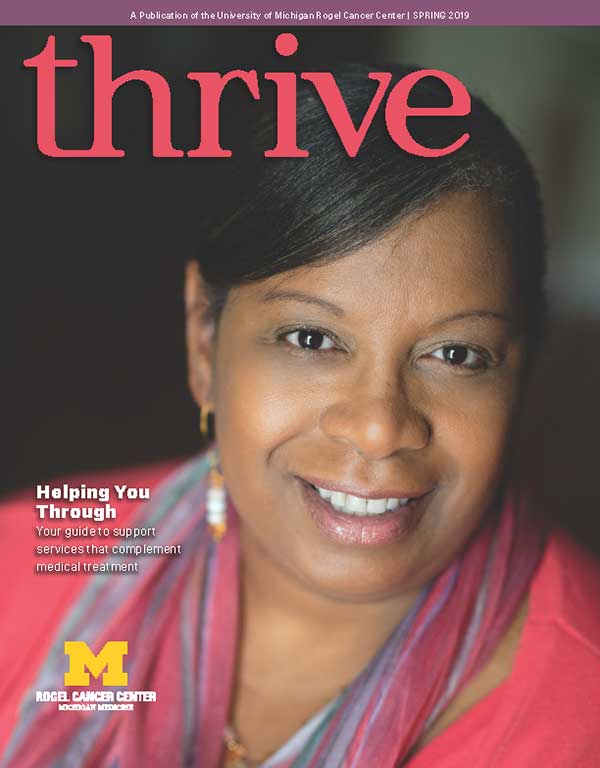Spring, 2019

Sheron Williams was trying to cope with her breast cancer diagnosis and an inflammatory disease called sarcoidosis. Sarcoidosis is a chronic illness that impacts her liver, lungs, skin and requires portable oxygen. The stress of both of these issues sent her looking for help -- and she found it when she began using guided imagery.
The sheer impact of the word cancer carries many emotions, such as fear, shock and worry. It can be challenging to make sense of all the information and put some order to it. Donna Murphy, LMSW, director of Patient and Family Support Services at the Rogel Cancer Center, talks about the importance of emotional well-being during cancer treatment and where to turn to find it.
Thanks to a generous donation to the Department of Radiation Oncology from former patients, a colorful rock garden lines the pathway to inspire patients before they even walk in the door. As one patient, Hannah Thomas, says, "It’s a reminder the people in there have your back and are there to support you during the worst time.”
After treatment for breast cancer, Michelle Peres felt tired, unhealthy and needed help to get back to feeling fit. She turned to the Cancer Nutrition Program for guidance. Over the next two years, Michelle lost 30 pounds, regained her stamina and improved her balance.
Cancer treatment -- and patients -- are often described using military terms. "Cancer warrior," "the fight of your life," and, when someone passes away from cancer, it can be described as "losing their battle with cancer." Michelle Riba, M.D., director of the PsychOncology Program at the University of Michigan Rogel Cancer Center, wants people to use different, more positive terms.
Information about what to do, when to call the clinic and over-the-counter options for cancer symptoms and side effects like nausea, fatigue, neuropathy, headaches and insomnia.
